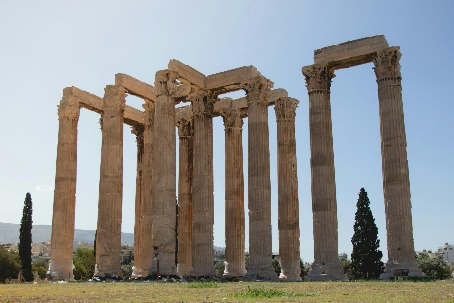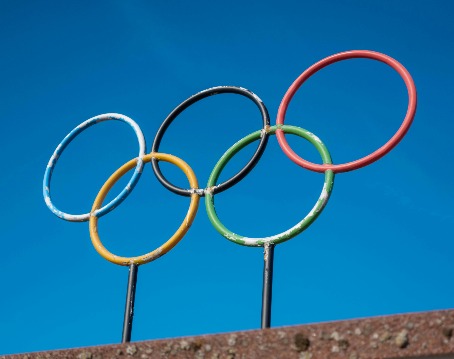Honouring Zeus Through Sports: The Olympic Games in Classical Antiquity
The inclusion of new sports like Breakdance in the Olympic programme for the 30th edition of the Summer Olympics, shows that the Games are continuously evolving. Originally, the Olympic Games were established in Ancient Greece in the eighth century BC. What did these Games look like? Which sports were practised at that time, and what were their main characteristics? We discussed this with Prof. Onno van Nijf, professor of Ancient History.
Character of the Classical Games
The Olympic Games in Classical Antiquity were held every four years in Olympia, in honour of the supreme god Zeus. Similar, smaller Games were also organized in other Greek cities in honour of other deities, such as in Nemea and Delphi. Participation in the Olympic Games was reserved for men of free birth, often from the higher echelons of society. Participants were expected to arrive a month in advance to train, under the supervision of the so-called hellanodikai: the Greek referees. The festival lasted six days, filled with athletic competitions on the one hand (pentathlon, running, wrestling, boxing, and pankration—a type of ancient version of modern MMA combat sports), and religious activities and an award ceremony on the other hand.

The Greek Identity
Sporting competitions and achievements at such festivals illustrate Greek body culture in Classical Antiquity, according to Van Nijf: “How well the body was trained was an expression of excellence. It was an elitist morality, essentially saying: a well-trained person is a good person.” Additionally, the Games had a unifying function: participants and spectators came together from all over Greece, thus acknowledging and expressing a shared Greek identity.
Were the participants like the professional athletes we know today? This is not so straightforward to answer. Van Nijf explains: “We should not always assume the level of the athletes was very high, but local competitions did produce great champions—after all, a broad base is essential for top-level sports.” Although they were not top athletes in the modern sense, as these athletes did not consider sports as labour, they were selected by the aforementioned Greek referees based on certain criteria. Additionally, the award ceremonies of the Olympic Games also contributed to the (social) status of the winners.
An important aspect of the Olympic Games was the worship of the supreme god Zeus. During the Games, processions were organized, and animals were sacrificed on a large scale, followed by a concluding, extensive banquet. Sport and religion were inherently connected in Greek Antiquity. In Athens, similar smaller games were organized in honour of the goddess Pallas Athena, and in Delphi in honour of Apollo. Although the size and popularity of these games varied greatly, running, wrestling, and boxing were truly central to Ancient Greek sports activities.

The Games Today
The Olympic Games of the past were strongly focused on affirming Greek identity, while today's Summer Games are characterised by their international nature. They were also strongly religious in nature, with fixed rituals in honour of the gods. Current rituals include the Olympic flag—symbolising the international aspect—and the Olympic flame, marking the ceremonial start of the Games. Van Nijf notes: “In the past, magistrates organized the Games; today, there is an Olympic Committee. The emphasis in the current Games is mainly on performance and solidarity in an international context.”
More news
-
13 January 2026
Doing good in complex situations
